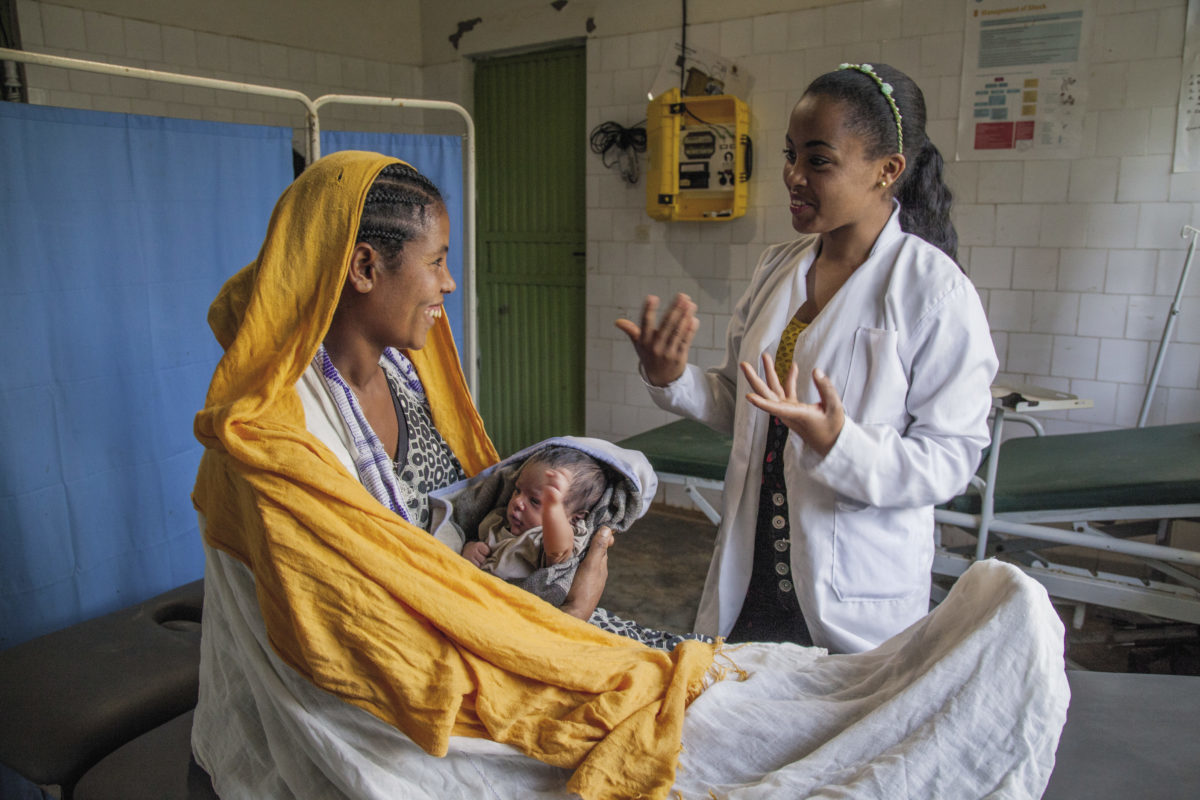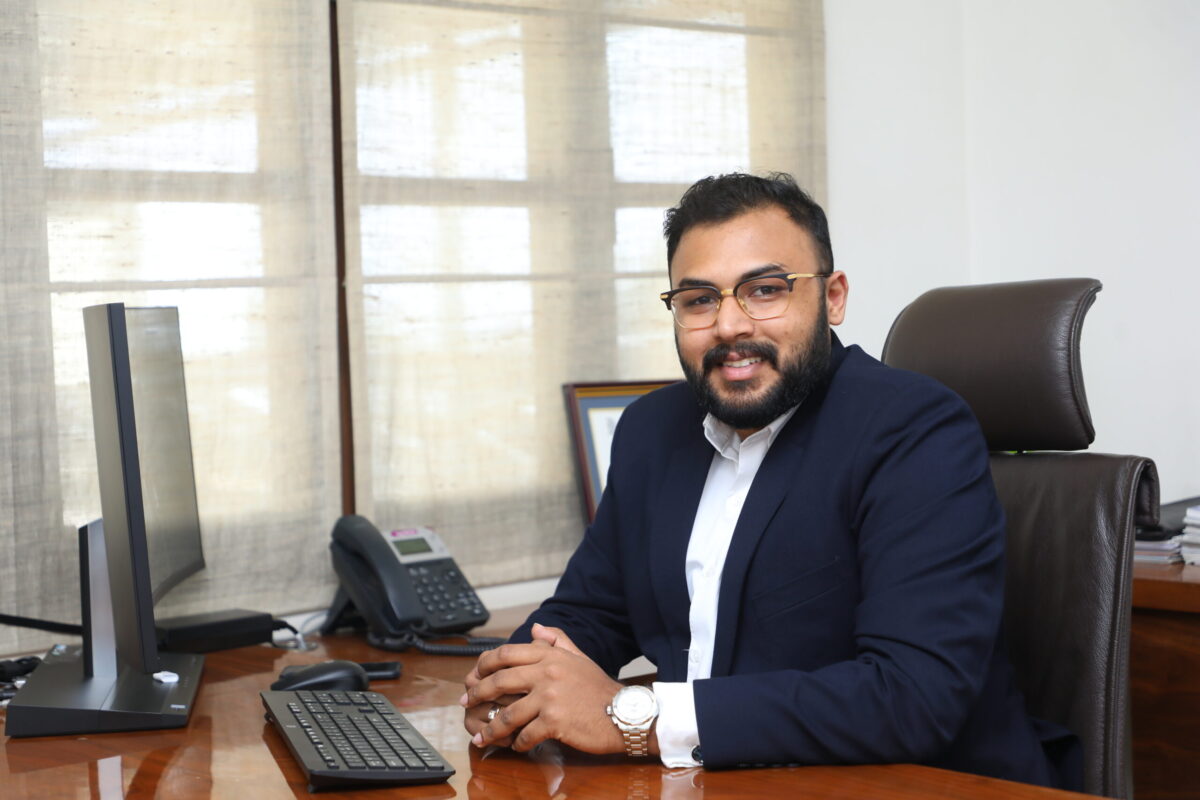From pv magazine 09/2020
In a personal health crisis of her own, obstetrician-gynecologist Laura Stachel experienced shooting pains down her arms in 2002 while conducting a C-section. Severe degenerating disc disease in her cervical spine put an end to her clinical career. Within two years, she was studying public health at the University of California, Berkeley, determined to lower rates of global maternal mortality that claim 500,000 lives a year. In 2008, she traveled to Nigeria to conduct field research at a state hospital. The hospital had no mattresses, no monitors, no running water, and no electricity – doctors and midwives were working without light for half of each day. She saw how the lack of electricity prohibited prompt lifesaving care; it wasn’t uncommon to lose three to eight women a month from complications. Yet doctors canceled C-sections, midwives delivered by candlelight, and many patients failed to get the care they needed. She was determined to “be a voice – for women who were dying in silence.”
Solar Suitcase
Stachel sent letters home to family and friends describing conditions in the Nigerian hospital. Her husband Hal Aronson, an environmental sociologist turned solar energy educator, worked with Laura to design four standalone solar electric systems for the hospital. These low maintenance systems were designed to power the most crucial areas of the hospital for maternal survival: the operating ward, maternity ward, the eclampsia ward, and the laboratory – for a blood refrigerator.
Hal created a compact solar electric demonstration kit for Laura to bring back to her Nigerian colleagues. It contained solar modules, a sealed lead-acid battery, a solar load center, charge controller, and LED lights. She fit the pre-wired miniature demo system into a suitcase. Upon arrival, the hospital staff asked Laura to leave it.
“I tried to explain that this was only a prototype, a demonstration of the larger system being commissioned,” she said. In turn, an operating room nurse told Laura, “You don’t understand – this can help us save lives right now.”
Initial results
The hospital was transformed. “The year after we put the solar electric system in, deaths dropped by 70%,” Laura recalled with excitement. “The hospital was previously turning away women at night, but with reliable solar lighting, admissions went up by 16% as the mortality rates decreased. Stachel thought that she was done and would go back to her research.
Word spread in the Nigerian communities about the solar-powered hospitals, and soon Laura had requests from other heath centers, asking “Why are you only helping the big hospital? We are in the dark as well.” Stachel and Aronsons’ California backyard quickly became an assembly line of family and friends, who had been collecting and donating their old suitcases to make more systems.
Bringing to scale
An article published by U.S. journalist Nicholas Kristof turned the project global. “Unbeknownst to me, Nick wrote about it, and the next day I received requests from around the world for solar suitcases,” said Stachel, “This was when we realized that energy poverty in health care was a global problem, extending well beyond Northern Nigeria.” A grant from the MacArthur Foundation permitted We Care Solar to focus on user-centered design to craft a system that could be manufactured at-scale. “I had two years of field research prototyping Solar Suitcases in Nigeria.” The rapid prototyping and testing Laura had been doing resulted in the evolved plastic cases being used today – equipped with a 120 W module, lithium-ion battery, dimmable LED lights, and a user-interface with an LCD screen. Hospitals and health clinics that were previously in the dark are now able to have lights, with operations being performed throughout the night.
Lighting up Zimbabwe
Far away from Laura, young entrepreneur Wadson Muchemwa grew up in poverty in Zimbabwe. Committed to building a better life for his family of five, his initial business ventures in Zimbabwe selling candy and cigarettes evolved to starting his own company selling electrical components at the age of 23. At that point, he had become a successful businessman supplying renewable energy projects around Zimbabwe. His ambitions grew with his success, and after building a home, he had a desire to make his country stronger. In 2009, he was introduced to Laura Stachel by a partner during a visit to the United States. As soon as he learned about the work of We Care Solar in Nigeria, Wadson thought “I knew that I had to bring this to my country and help.”
Muchemwa started his own solar company, ZimEnergy, selling Sunking solar lanterns to provide home solutions in rural communities, which has evolved today to be one of the largest national developers for solar-plus-storage projects. He planned to direct 10% of company proceeds to his new non-profit, ZimEnergy EcoFoundation, for We Care Solar suitcases to get to health clinics. But the costs were high and attempts to get organizational support proved difficult. Critiqued for being a “futurist,” it took two years and several rejections before his NGO was finally approved by the Zimbabwe government. Struggling for buy-in and financing, Stachel told Muchemwa she could send 20 suitcases, but he needed commitment from the country. Initially, he faced doubts surrounding PV technology, the proposed beneficiaries, and also his alliance working with Westerners. “I had to keep pushing the government and told them, ‘There is no more important beneficiary than those in healthcare, I have seen what happens to a mother in rural birthing clinics without light.’” In 2016, after many sleepless nights and long negotiations, Muchemwa established an MOU with the Ministry of Health and Childcare. We Care Solar sent the 20 suitcases.
After nearly a decade, ZimEnergy Ecofoundation now has a staff, including two women, and Muchemwa has installed Solar Suitcases in more than 200 clinics in Zimbabwe. His face lights up in explaining how the now national project is changing lives in his country. “Most deliveries occur at night, and women would walk in the dark to clinics with their candles that they needed to give birth – usually also using the candles to avoid snakes along the way,” says Muchemwa. Complicated deliveries can take six to seven candles, whereas most women will only bring two. “I go into a clinic and tell the health practitioners that by the time I leave, their facilities will have immediate light, and that they can tell the next woman giving birth that she can keep the candles and bring them to light up her home.”
Ambitious agenda
The successes of partnerships in Nigeria and Zimbabwe paved the road for Stachel and her team to build a more ambitious agenda in 2017. We Care Solar’s Light Every Birth initiative aims to ensure all can access safe deliveries in well-lit facilities, based on the premise: All women have the right to safe childbirth; every health center is entitled to reliable electricity; solar electricity offers an immediate and sustainable solution to this global challenge. Tying into the UN Sustainable Development Goals (SDGs), the organizational agenda has received buy-in and support from governments yielding impressive results, with its first success to electrify all maternal facilities in Liberia. “Working in collaboration with the Ministry of Health and several partners, we were able to equip every frontline health center in need of clean energy for safe childbirth,” says Stachel. “This was 78% of the public health centers in the country!” In the immediate term, We Care Solar is focusing on four countries: Liberia, Uganda, Zimbabwe and Sierra Leone with the initiative. Ambrose Katungi Muhwezi moved to We Care Solar after working with the Ministry of Health and Doctors with Africa. Muhwezi says that Light Every Birth is not limited to Solar Suitcases, but instead a collaborative venture calling upon the entire renewables sector – from energy agencies and installers to local governments and international NGOs – to partner for powering health facilities’ maternal services. To kick off a national initiative in selected countries, We Care Solar conducts landscape analyses and pilot programs focused on districts, and then obtains country commitments with Ministries of Health to power every facility.
After successfully completing Light Every Birth in Liberia, Muhwezi says that the organization is focused on Uganda, where it has 1,400 solar suitcases deployed with a target of reaching 2,400 health facilities. We Care Solar has 436 systems installed in Zimbabwe and 136 in Sierra Leone, with targets for 1,000 suitcases to electrify national maternal health facilities in each country.
Light Every Birth implementation is primarily government-led supported by private-public partnerships. We Care Solar country staff work with health ministries and NGO partners to assess and select energy-poor health facilities. We Care Solar ships suitcases and works with installers to deploy the systems and train health workers to use them correctly. The NGO then administers quality control with subcontractors to ensure the systems are working properly.
Funding mission
The greatest challenge that We Care Solar faces in achieving its mission, as is typically the case for non-profit organizations, is that of funding. Muhwezi says there are gaps between finding the projects and the timing of obtaining the funding. The cost to support a health facility for five years with a Solar Suitcase is typically $3,500 for product, shipment, installation, training, and maintenance. Some projects have hundreds of health facilities and are supported by foundations and other individual donors.
Fifteen years after initiating her public health studies, Stachel says she is just now completing her doctoral dissertation – We Care Solar has been the priority. But it seems that the developing world health pioneer for solar PV is just at the beginning of her charge.
Looking ahead, she is interested in building coalitions among the solar PV industry, funders, and advocates alike to bring electricity to every health care center in the world by 2030, “so that a woman doesn’t have to wonder whether her health center is going to have light or not.” Stachel proclaims that it is a fundamental right for all women to have access to electricity as a part of universal health care. “We all need to be in this together.”
This content is protected by copyright and may not be reused. If you want to cooperate with us and would like to reuse some of our content, please contact: editors@pv-magazine.com.








3 comments
By submitting this form you agree to pv magazine using your data for the purposes of publishing your comment.
Your personal data will only be disclosed or otherwise transmitted to third parties for the purposes of spam filtering or if this is necessary for technical maintenance of the website. Any other transfer to third parties will not take place unless this is justified on the basis of applicable data protection regulations or if pv magazine is legally obliged to do so.
You may revoke this consent at any time with effect for the future, in which case your personal data will be deleted immediately. Otherwise, your data will be deleted if pv magazine has processed your request or the purpose of data storage is fulfilled.
Further information on data privacy can be found in our Data Protection Policy.